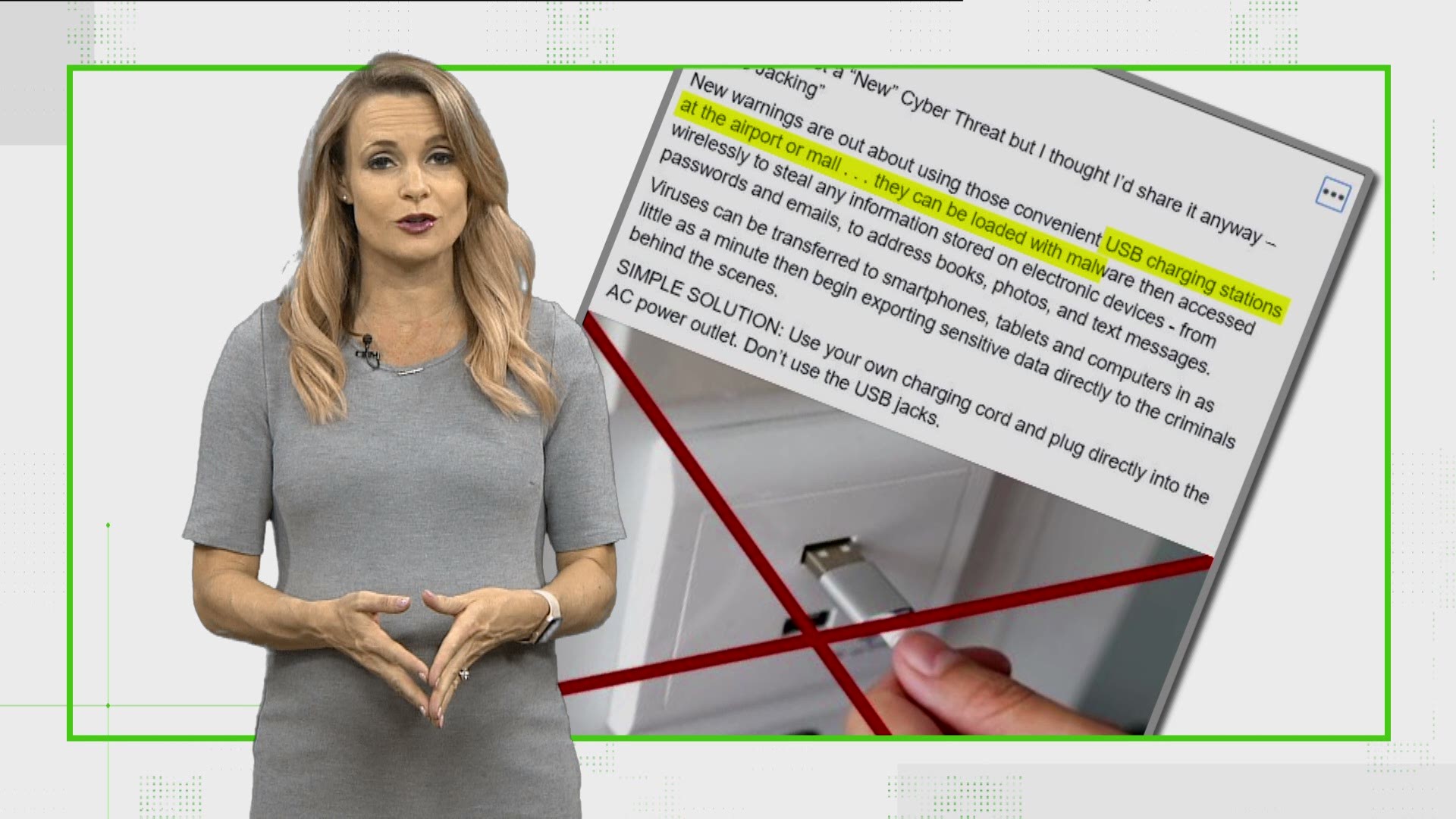With the holidays quickly approaching, airports everywhere are about to get pretty crowded. That means millions of travelers will be using USB charging stations. But, could they pose a threat to your personal data?
A recent Facebook post warns airport USB charging stations are infected with malware which can steal your data, but is that true? To find out, we turned to Mark Ostrowski, head of engineering, US East, for Check Point Software. Mark says the post is referring to what some call juice jacking. It happens when a hacker installs spyware on a free public charging terminal and then someone plugs their phone into the station, their data is downloaded, malware is uploaded, or both.
So, we can verify, your data is at risk when using a public charging station.
"The biggest risk is you don't really know what you're connecting to."
Mark says it's best to avoid them all together.
But, if needed, are there ways to protect your information?
The answer is yes.
Mark tells us one option is to bring your power wall plug and use an electrical outlet instead.
If you have an Apple device, you can choose whether or not to allow data access once you connect your phone to charge.
Finally, there's protective software you can download.
"It can tell you when something is accessing your camera or GPS coordinates when it's not supposed to, just obvious things like that."
Are airport charging stations the only thing we should be concerned about?
No.
The threat is equal at any public charging station on all types of phones and devices because the USB cable is where your power and data streams pass.
Take USB ports in rental cars for example.
Bottom line: we keep a lot of information on our phones, via pictures, emails and GPS coordinates, so making sure you're protected is crucial.
"What we're carrying around is not a phone anymore, right? You know it's a recording device, a GPS locator. It's a camera, it’s a video source, and consumers should be aware about what type of applications are requesting that type of stuff."

